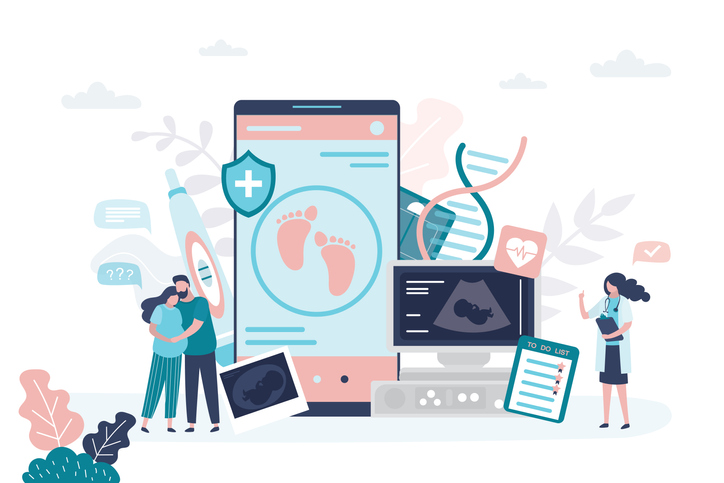
A year after its venture arm invested in family planning company Ovia Health, Labcorp is acquiring it.
The deal would extend Labcorp’s women’s health business, giving it a foothold in the fertility benefits space. It would complement some of the tests Labcorp offers through its direct-to-consumer service, including fertility tests and pregnancy tests. The companies didn’t disclose the terms of the deal, but Ovia is expected to bring in about $20 million in annual revenue.
A Labcorp spokesperson wrote in an email that the deal would enable both companies to improve the experience and outcomes for patients seeking care for fertility, pregnancy and family planning. Going forward, the companies will look at creating more ease-of-use solutions for providers and patients.
Ovia CEO Paris Wallace said in a news release that he was “particularly excited about developing new products and services with Labcorp that fulfill the unmet needs of individuals with reproductive health conditions.”
Ovia Health has three apps: one for fertility tracking, one for tracking the stages of a pregnancy, and a parenting app. They include cycle tracking, algorithms to predict fertility, articles and coaching.
Ovia has both a consumer-facing version of its services, as well as one offered as a benefit through patients’ employers. Both come with some privacy considerations, as highlighted in a Consumer Reports investigation on period tracking apps.

A Deep-dive Into Specialty Pharma
A specialty drug is a class of prescription medications used to treat complex, chronic or rare medical conditions. Although this classification was originally intended to define the treatment of rare, also termed “orphan” diseases, affecting fewer than 200,000 people in the US, more recently, specialty drugs have emerged as the cornerstone of treatment for chronic and complex diseases such as cancer, autoimmune conditions, diabetes, hepatitis C, and HIV/AIDS.
The company collects users’ IP address, phone advertising ID and app activity, according to its privacy policy. For people using the consumer-facing version of its app, it can use this information to serve ads to them. For those who access it through their health plan, the company may share aggregated data with employers, according to the Washington Post.
In addition, the information that Ovia and its coaches provide cannot be used as medical advice, which may leave some expecting and new parents with questions.
Ovia is one of a growing number of companies incorporating technology with fertility benefits. For example, Progyny, which went public in 2019, gives members access to diagnostic tests and a network of fertility specialists. Other startups are taking the approach of building in-person and telemedicine clinics specifically focused on obstetrics.
Photo credit: Aleksei Naumov, Getty Images












